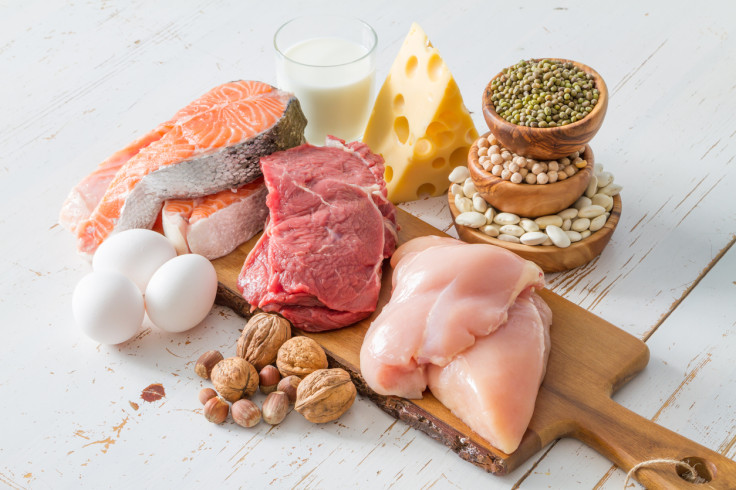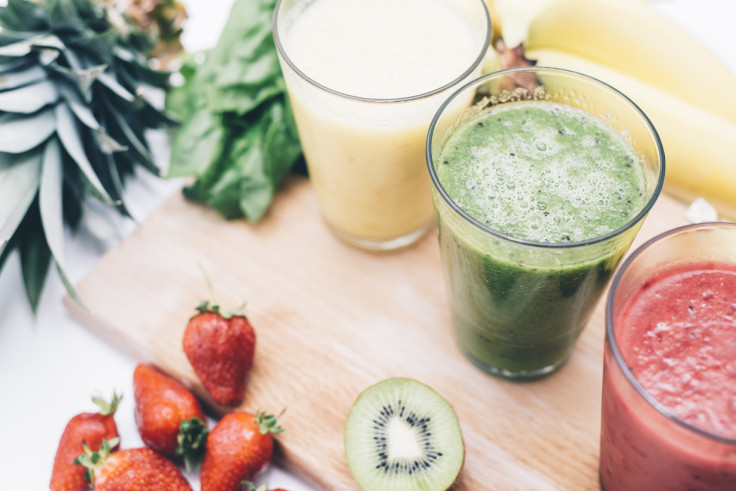What is 'Protorexia' – a protein-shake fad or a symptom of dangerous clean eating?
There is a fine line between eating healthily and eating obsessively.

A different health food trend emerges every few years. In the 1980s, "fat free" was the term du jour, with everything from yogurts to cheese and sweets suddenly branded low fat. Despite this, our waistlines continued to grow. It later emerged that the fat content of these products had been replaced with huge, toxic amounts of sugar.
Protein is now the name of the diet game. Gym-goers swig from protein shakes and nibble on protein bars. We eat boiled eggs as snacks. We buy lunch from pop-ups called Protein Haus and feast on skinless, broiled chicken breasts with green veg. This trend is now so popular that the term "protorexia" has been coined to describe those who eat excessive amounts of protein and militantly eschew other food groups, like carbohydrates.
Eating lots of protein is often promoted as clean eating - a trend with 28 million posts on Instagram, popularised by Deliciously Ella and the Hemsley sisters. Essentially, it encourages people to avoid processed foods and to eat as naturally as possible, which considering two in three British adults are overweight or obese, can only be a good thing. Or can it?
At surface value, blandness is the only danger associated with a high-protein, "clean" diet. Protein is essential for the body and it is filling, so high-protein diets can aid weight loss – although not in the long run. But obsessing over certain foods – eggs, turkey – and banishing others – bread, pasta – can be the sign of a bigger problem: an eating disorder.
Fadela Hilali, author of Stuffed, suffered from anorexia and bulimia. She turned to clean eating in 2012, only to realise it was yet another form of disordered eating.
"I had started a new job and wanted to seize the opportunity to become the healthiest version of myself – read, perfect – only this time for good," she says. "In a very similar fashion to the eating disorders I had battled in the past, my every thought revolved around food. I was very rigid with what I could and couldn't eat.
"I realised that while I claimed my food choices were based on health benefits, deep down I knew that it was really about losing weight or staying slim. I avoided going out for lunch with colleagues and friends because the restaurants didn't have any food healthy enough by my standards. If I happened to eat something that wasn't clean, it usually led to a binge.
"The guilt would overwhelm me and I would sometimes spend hours thinking about the consequences and how I could undo them in the following days."
Like so many other clean eaters, Hilali was introduced to high-protein diets as a form of eating healthily.

"It was very exciting because as opposed to traditional diets, I didn't have to worry about the quantities I ate and it was all going to lead to muscle gain and fat loss, what's not to love? It usually went like this, I would eat a very high protein diet for a week (including protein shakes and bars), lose weight and start eating normally again but mindful to not overindulge on carbs," Hilali says.
"One of the 'rules' we went by was that if we needed to go to a big party, we would go for a high protein fix two days before and/or two days after which would supposedly give us complete freedom to indulge on the day without suffering any weight gain consequences."
Nutritionists and mental health experts have criticised the clean eating trend as dangerously promoting obsessive and unhealthy eating habits. It can encourage the development of orthorexia nervosa, an obsession with foods believed to be healthy. As was the case with Hilali, it can impact a person's social life and physical and mental health.
There is clearly a fine line between eating healthily and eating obsessively – and the latter can be extremely detrimental. Around 725,000 people in the UK are affected by an eating disorder. New research released by the eating disorder charity B-eat for Eating Disorder Awareness Week found three out of ten eating disorder sufferers do not receive a referral from their GP for treatment.
"Focusing on one particular food group, so much that it impacts on your everyday life and social interactions, can indicate an eating obsession," says Chloe Miles, a spokesperson for the British Dietetics Association.
"Restricting particular food groups and only eating from one particular food group may indicate disordered eating. If you are thinking about your dietary choices all of the time, even not at mealtimes, it is likely that a person's eating cognition has become unhealthy."
It's not entirely clear why avoiding gluten and carbs and overloading on protein is actually healthy. Carbs are essential as they are the body's main energy supply.
"It is important to have a balanced diet, rather than just focus on one food group," Miles says. "By eating a lot of protein and ignoring other food groups you may miss out on other essential nutrients such as calcium or omega 3 fatty acids. Starchy carbohydrates should make up 1/3 of your diet, fruit and vegetables another 1/3 and then protein rich foods, low fat dairy products and unsaturated fats and oils should be consumed in smaller amounts."
The clean eating trend is clearly going nowhere soon. We are addicted to gluten-free, raw food, spiralising, Nutribullets and juicing – a food culture centred on claims of nutrition and "wellness", peddled by young, lithe Instagrammers.
And where our health is concerned, there is money to be made. Supermarket aisles are stuffed with energy balls, protein flapjacks and egg-and-spinach protein pots. In its first week of sale alone, Deliciously Ella sold 32,000 copies to become the fastest-selling cookbook of all time. Clean eating is big business.
Eating Disorders Awareness Week is from 27 February - 5 March.
© Copyright IBTimes 2025. All rights reserved.






















